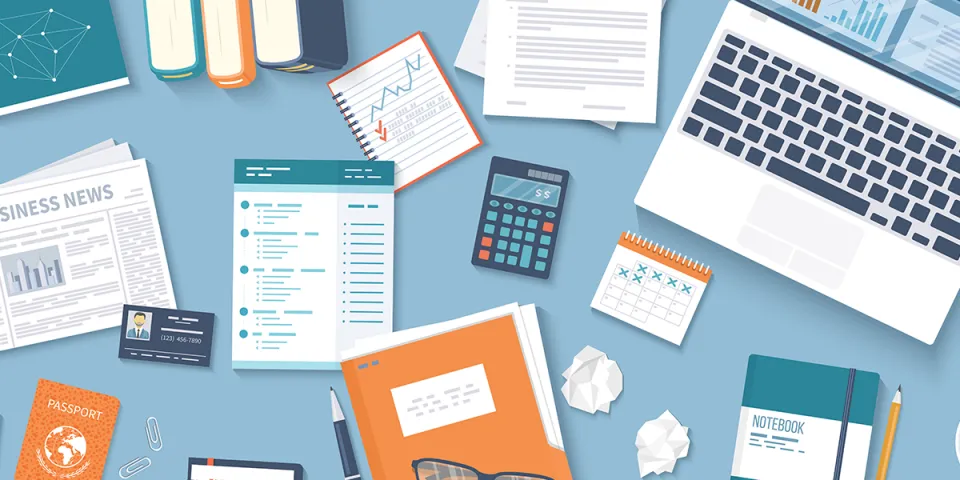Latest
5 Things to Do During Syllabus Week
Sep 3, 2019

The beginning of a new semester can be both exciting and stressful, and you might be anxious about starting your new classes. Luckily, there are a few things you can do right away to make the rest of the semester easier.
One of those is to take full advantage of Syllabus Week, which is the ideal time to prepare for the semester and get organized.
What is Syllabus Week?
Syllabus Week refers to the first week of classes in a semester. For the most part, your first week will serve as an introduction to all of your courses. Professors will use this time to give an overview of the class and review all of the details you need to know ahead of time. They’ll hand out a syllabus, which is a document that summarizes all of this information, likely including exam dates, assignment deadlines, learning goals, materials needed, and the professors' contact information.
Here are five ways to take advantage of Syllabus Week:
1. Read the syllabus
Reviewing the syllabus is the best thing you can do to prepare for the semester. Some students find the syllabus overwhelming, but you need to know what will be expected of you in the coming weeks. The professor might not go through all of the items in detail during class time, which is why it’s important for you to take the time to review the syllabus carefully on your own.
2. Go to all your classes and pay attention
Don’t skip class during the important first week. Your instructors might share information with the class that isn’t listed on the syllabus. It’s also a good opportunity to adjust to your new routine and schedule, as well as make a good first impression on your professors.
3. Get to know your instructors and classmates
Professors are trying to get to know all of their new students during the first few classes, so they’ll appreciate efforts you make to introduce yourself personally. If you cannot find time to talk to them in person, you can always send an email and ask any questions you have after reading the syllabus.
This first introduction is important because the semester can get busy and you are most likely going to need to reach out for help at some point. If you introduce yourself during Syllabus Week, you’ll probably feel comfortable going to the professor for help during the rest of the semester. Professors can also be helpful for references and networking down the road, so it’s good if you can start building a relationship with them early on.
Try and talk to at least one or two classmates as well. Creating connections with classmates can come in handy when you are working on assignments or studying for an exam. If you reach out during the first week, you can start to form study groups right away instead of waiting until the first exam draws closer. If you’re an online student, consider creating a Facebook group or following Herzing's Facebook page to get to know your classmates or introducing yourself on the class discussion board.
4. Get all the materials for your classes
Come to your first class with at least a notebook and a pencil so that you can take notes. After class, look at the syllabus to see if you need to get other materials, such as books, binders, folders, or anything else the class requires. Try to get these materials as soon as possible so that you don’t fall behind in the next few weeks of class. Also, make sure to keep your syllabus with the rest of your class materials, so it’s easier for you to find it and refer back to it later on.
5. Plan ahead
Syllabus week is a great time to get organized, which will make the rest of the semester much easier. Make sure you have a planner so you can write down important dates for the semester. Once you have all of these dates laid out, you can start to plan ahead for major assignments. For example, if you have a research paper due at the end of the term, you might want to complete your first draft a few weeks ahead of time so that you can visit the Writing Center and review it with a tutor. Set your own intermediate deadlines and record these in your planner to ensure that you don’t procrastinate on significant projects.
It’s never too early to start getting organized for the new semester. By making the most of Syllabus Week, you can prepare yourself for the future, make a good first impression, and prioritize your time so that you can be successful. Good luck!
Find Your Program At Herzing University
Bureau of Labor Statistics (BLS), U.S. Department of Labor, Occupational Employment and Wage Statistics 2023 / Occupational Outlook Handbook 2022. BLS estimates do not represent entry-level wages and/or salaries. Multiple factors, including prior experience, age, geography market in which you want to work and degree field, will affect career outcomes and earnings. Herzing neither represents that its graduates will earn the average salaries calculated by BLS for a particular job nor guarantees that graduation from its program will result in a job, promotion, salary increase or other career growth.
Latest
Recent Blog Posts
Subscribe to our Newsletter
Get the latest news you need to know, from study hacks to interview tips to career advancement. Have it delivered right to your inbox biweekly.








